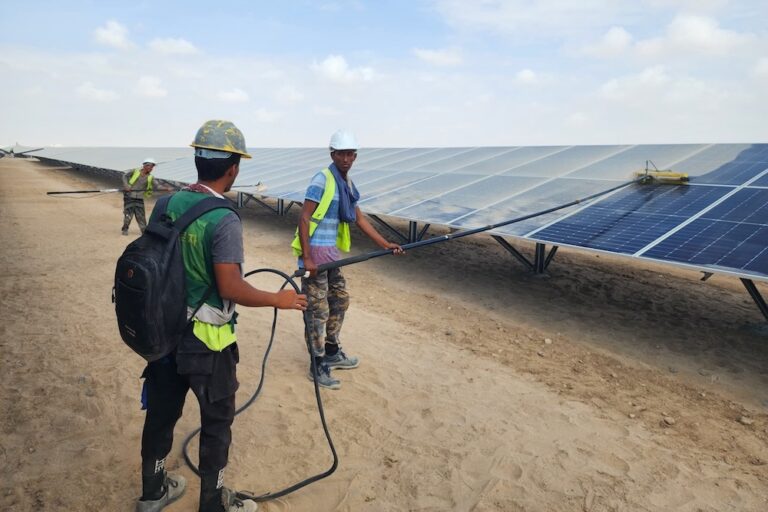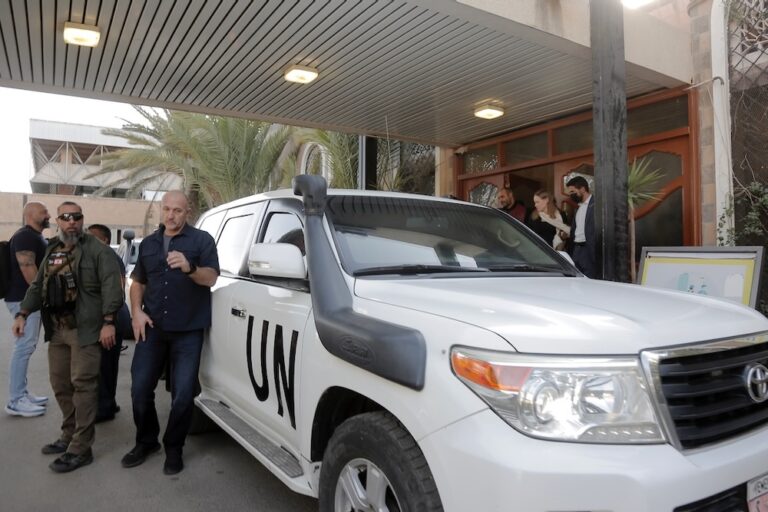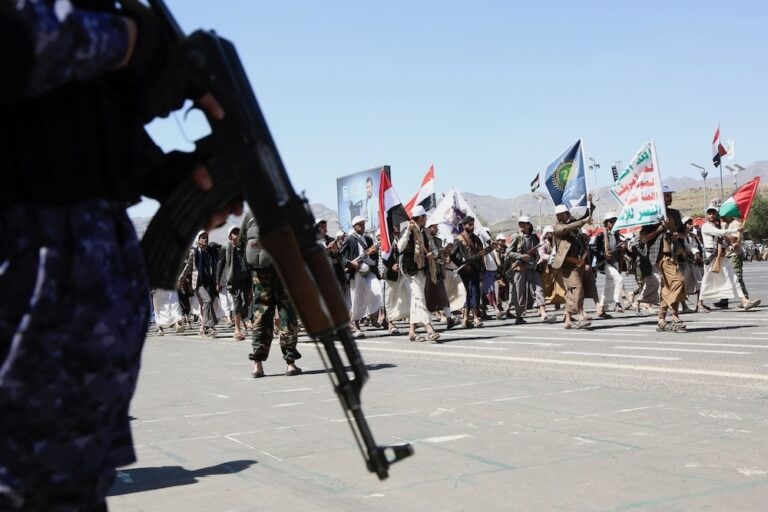(CPJ/IFEX) – In a 10 May 2000 letter to President Ali Abdullah Saleh, CPJ strongly protested the prosecution of Hisham Basharaheel, the editor in chief and publisher of the independent thrice-weekly newspaper “Al-Ayyam”. In a hearing on the morning of 10 May at the Seera Court of First Instance, Basharaheel was charged with a multitude […]
(CPJ/IFEX) – In a 10 May 2000 letter to President Ali Abdullah Saleh, CPJ strongly protested the prosecution of Hisham Basharaheel, the editor in chief and publisher of the independent thrice-weekly newspaper “Al-Ayyam”.
In a hearing on the morning of 10 May at the Seera Court of First Instance, Basharaheel was charged with a multitude of offences including publishing “false information,” “instigating the use of force and terrorism,” and “insulting public institutions.” The accusations are based on an interview with the London-based Muslim cleric Abu Hamza al-Masri which was published in “Al-Ayyam” on 11 August 1999. In the interview, al-Masri criticised the trial of his son Muhammad who had recently been convicted of terrorism by a Yemeni court. Al-Masri also criticised the trial of alleged members of the
Aden-Abyan Islamic Army, a shadowy Islamist group that was accused of kidnapping and murdering foreign tourists in Yemen.
If convicted, Basharaheel faces up to three years imprisonment and fines reaching 4,000 rials (US$26). The state prosecutor has also requested the indefinite closure of the Al-Ayyam Printing House which prints “Al-Ayyam”, a move that would effectively shut down the newspaper.
Moreover, a conviction against the journalist could potentially trigger the enforcement of a separate six-month suspended prison sentence previously handed down against Basharaheel on 4 August. In that case, Basharaheel was convicted of “instigating national feuds,” “instigating the spirit of separatism,” and “harming national unity,” among other charges, in connection with an article written by contributor Ali Haitham Ghareeb and published in the 27 February 1999 edition of “Al-Ayyam”. The article, titled
“Let’s Talk about Unity from the Social Perspective,” criticised the fact that southern provinces are governed mainly by politicians from the north of the country.
Basharaheel’s trial is adjourned until 31 May.
Despite positive statements in support of press freedom made by Prime Minister Abdel Karim al-Iryani last July to CPJ vice chairman Terry Anderson in Sanaa, Yemeni authorities continue to restrict the work of Yemeni journalists in violation of international press freedom standards. In their meeting, Prime Minister al-Iryani told Anderson that harassment and threats against journalists are “abhorrent to our laws and ideals” and should be condemned. He added that the Yemeni government was “committed to freedom of the press,” and that it is “ready to listen to any report of a violation and ready to take action.” Regrettably, since that meeting, Yemeni courts have continued to punish independent and opposition journalists through prosecutions and acts of censorship which flout the most fundamental principles of a free press.
Recommended Action
Send appeals to the president:
– respectfully urging His Excellency to examine all possible legal options to ensure that the charges against Basharaheel are dropped immediately and that “Al-Ayyam” is able to publish without future interference from authorities
– calling on the Yemeni government to initiate meaningful legislative reforms aimed at halting the prosecution of journalists in response to their professional work
Appeals To
APPEALS TO:
His Excellency President Ali Abdullah Saleh
c/o His Excellency Ambassador Abdul Wahab al-Hajjri
Embassy of the Republic of Yemen
2600 Virginia Avenue, N.W.
Washington, DC 20037
U.S.A.
Fax: +202 337 2017
Please copy appeals to the source if possible.


